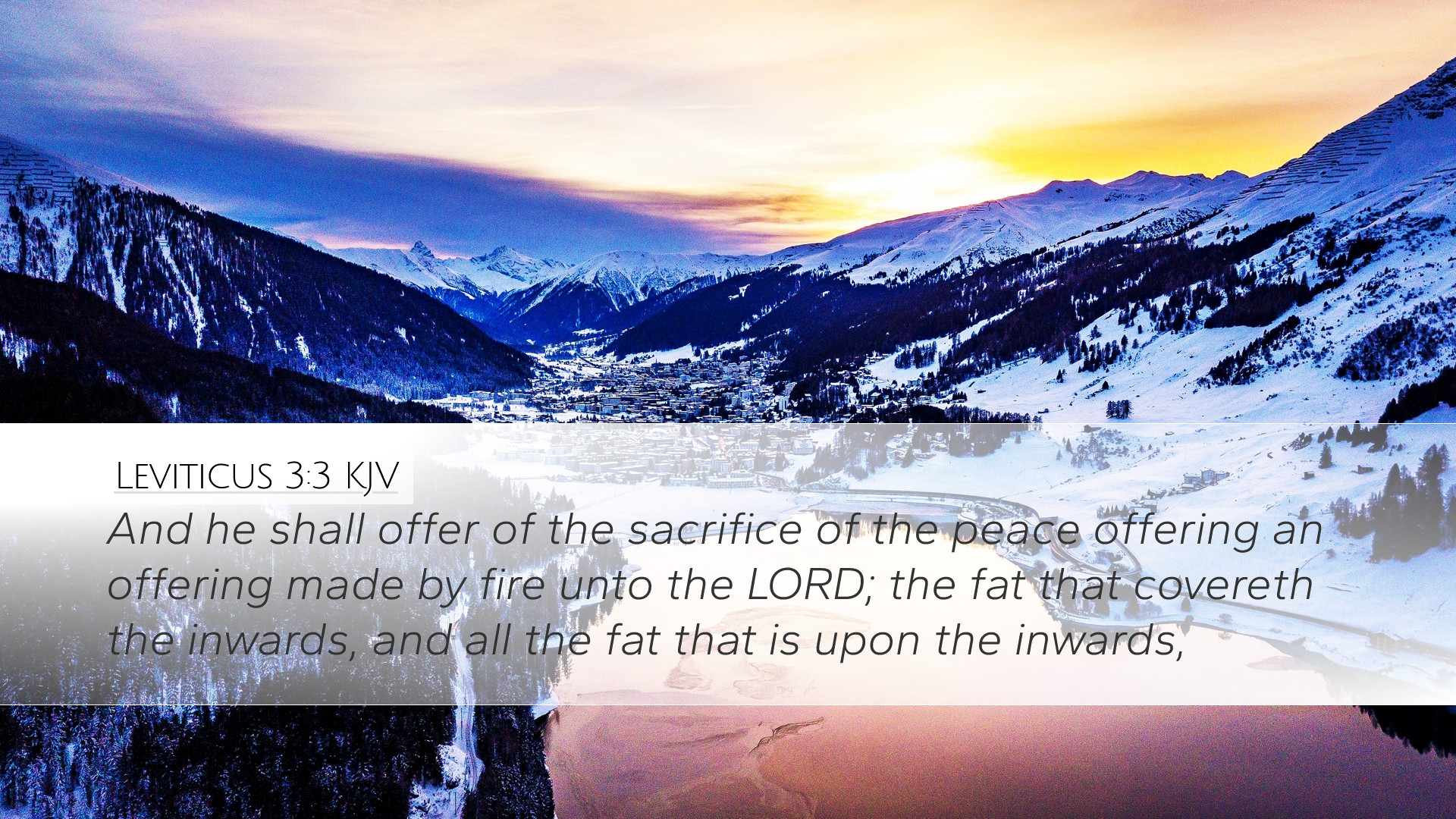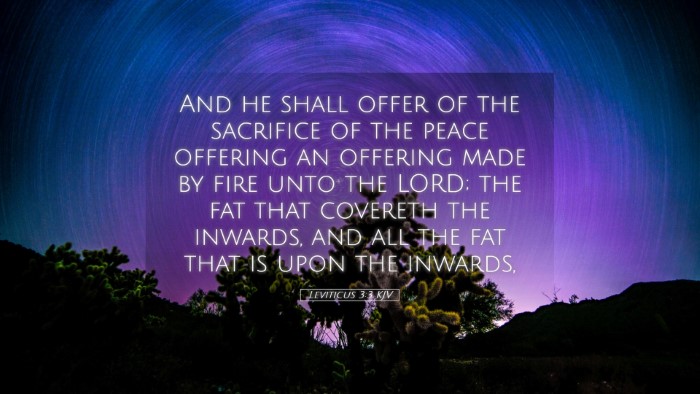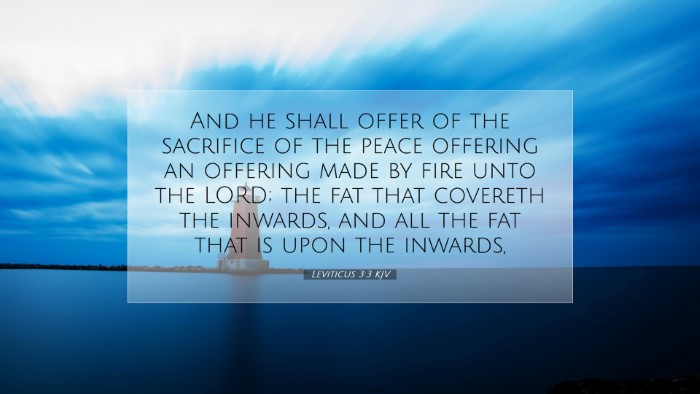Commentary on Leviticus 3:3
Verse Context: Leviticus 3:3 states, "And he shall offer of the sacrifice of peace offerings an offering made by fire unto the Lord; the fat that covereth the inwards, and all the fat that is upon the inwards." This verse describes the components of the peace offering, emphasizing the importance of certain elements designated for God during the sacrificial rite.
Overview of Peace Offerings
The peace offering (or fellowship offering) represented a form of communion with God, allowing the worshipper to express gratitude or seek reconciliation. It differed from other sacrifices, not only in purpose but also in its communal aspect, allowing for part of the offering to be shared among the priests and the offerers. The instructions given within the Levitical laws reflect God's desire for His people to engage meaningfully in worship and maintain a correct posture of reverence and gratitude.
Significance of the Fat
Fat in Sacrificial Context: The fat present in the peace offering is significant for numerous reasons:
- Symbol of Abundance: The fat, often seen as a symbol of abundance and richness, represents the best portion of the animal, dedicated to the Lord.
- Holiness of God: Fat was considered holy and was to be offered to God; it signifies the distinction between the sacred and the profane.
- Divine Acceptance: Offering the fat demonstrates the worshiper's desire for divine acceptance, aligning with God's holy standards.
Insights from Matthew Henry
According to Matthew Henry, the peace offering is notable because it is the only offering that the offerer could partake in, symbolizing fellowship with God. He highlights that the act of offering the fat serves dual purposes - it is both a devotion to God and a means of enjoying communion with Him. The separation of fat from other parts of the sacrifice underscores its significant role and the gravity of giving one’s best to God.
Application of Henry’s Commentary
Henry cautions believers to reflect not only on how they present their offerings to God but also on the spiritual posture they embody when approaching Him. It is a reminder to prioritize worship with a heart focused on holiness and reverence.
Insights from Albert Barnes
Albert Barnes emphasizes the sacrificial nature of the offering and the instruction that the fat is to be wholly consumed by fire on the altar. He notes that this act signifies God’s complete ownership and the worshipper’s acknowledgement of God's lordship. This offering is illustrative of yielding oneself entirely to God’s authority and divine sovereignty.
Theological Implications of Barnes’ Commentary
Barnes draws a parallel between the Old Testament practices and the New Testament understanding of sacrifice through Jesus Christ. The peace offering can be seen as a precursor to the communion established in Christ, who, as the ultimate peace offering, invites believers into fellowship with God without the need for traditional pleasantries of sacrifice.
Insights from Adam Clarke
Adam Clarke provides detailed observations on the nature of sacrifices in the Hebrew culture. He explains that the fat was reserved specifically for divine consumption, illustrating the sanctity of God’s requirements. Clarke notes that such offerings fostered a reverence for the holiness of God and served as a cultural reminder of the required physical and spiritual purity in worship.
Practical Applications of Clarke’s Insights
Clarke's exposition encourages modern believers to consider how their lives reflect the expectations placed upon ancient worshippers. The act of setting aside that which is 'fat' in one's life—those elements we may consider excessive or compromising—can represent a commitment to offering our best to God.
The Peace Offering Today
In conclusion, Leviticus 3:3 serves as a profound reminder of the need for thoughtful and sincere worship, where believers are invited to bring their best before God. The insights from Henry, Barnes, and Clarke collectively invite a consideration of how worship today should reflect a heart dedicated to holiness, obedience, and deep communion with God.
Final Reflections
As pastors, students, theologians, and scholars engage with the text, the challenge remains to examine our contemporary practices in light of the ancient rites. How does one ensure that offerings—however they may manifest today—reflect true reverence and gratitude to God? Leviticus 3:3 and its surrounding context encourages a spirituality intertwined with integrity, dedication, and an understanding of God’s supremacy over all aspects of life.


